Ira Khan: I did not make healthy choices and systematically walked into depression – #BigInterview | Hindi Movie News – Times of India
In this week’s Big Interview, Ira bares her heart about dealing with clinical depression, her bouts of low phases and father Aamir Khan’s support in this initiative to spread a word about sound mental health.
There are several myths and misconceptions about depression in India. How did your diagnosis come about?
I was diagnosed with clinical depression in 2018. I was working on my play and someone told me about how AR Rahman had talked about his anxiety and how it helped a lot of people. So, I thought I could do that too. I had the words to articulate what I was going through which I realized not a lot of people have. I have learned a little bit of psychology and my aunt is a therapist. I was diagnosed in 2018 but I was trying to figure this out many years before that. I realized that this was something that I could do. Then I spent the next three years talking to people, reading stuff, and trying to figure out whether I actually wanted to do this because it’s a big responsibility to get involved in someone’s mental health.
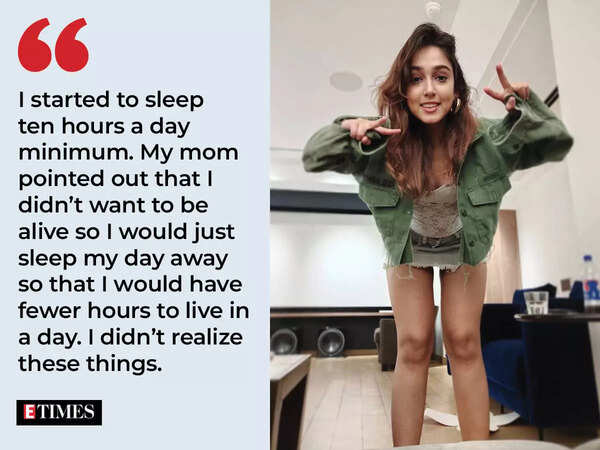
Shed some light on your initiatives for mental health…
I founded a company in 2021 but we didn’t do anything for one and a half years because I was so confused. Every time I tried to do research I found gaps. I thought all therapists were great. But every time I met someone, they told me horrifying experiences they had with their therapist where they broke their confidentiality or made them worse. I wondered how these people ended up with therapists who were not even helping them. When I started looking into it, I found that there’s no licensing of therapists in India. There is only a license for clinical psychologists. Once you complete your Masters degree, you’re automatically allowed to practice. So you can do a six-month course and become a therapist and this scared me a bit.
My mother advised me to start small and see how things turn out. So, after a year and a half, we decided to start a community centre.
We are in a low-resource setting. It worries me that we don’t have a lot of professionals and hence we are trying to come up with these courses that can make people certified to practice different kinds of therapies. But I am afraid that it affects the quality of the actual therapy because it’s not easy to be a therapist.
What did you learn through this journey?
I realized that if you have finished your master’s degree, it means you’re 21, which is a volatile age of anybody’s life. Going from teenage to adulthood, your life is completely changing. You’re trying to figure out who you want to be, what you want to become, you’re falling in love, moving out of your parents’ home. It’s a turbulent time because there’s a lot of uncertainty. How are you supposed to be someone’s grounding person when you’ve hardly lived life yourself?
I think it is unrealistic to expect someone who’s only 21 to be someone’s therapist. It requires training and it requires a certain amount of self-growth because otherwise your insecurities and all the things that you’re feeling will come in the way of you being able to take someone else’s therapy. So, I kept finding gaps in the system. Also, people look at mental health from a narrow perspective. Many things affect your state of mind. Your mind is what? Who are you as a person? What relationships do you have? What do you want to do in your life? All of these things are your mental health. Your whole life is essentially mental health. We’re experiencing this world through our minds. Everything that you do is related to your mental health. So, why are we not taking our mental health seriously?
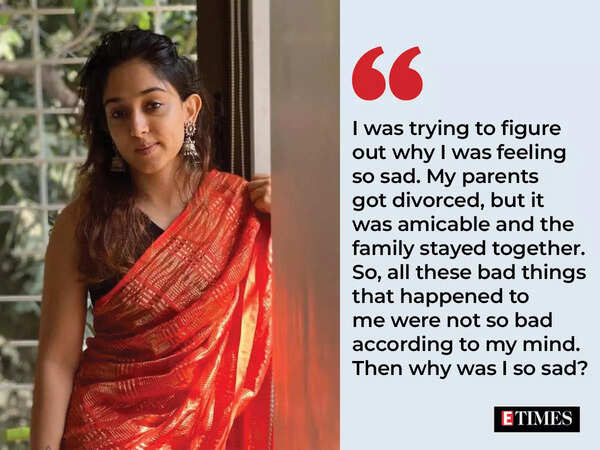
So, in my head, I’m not working on mental health. I’m working on life. So, that’s really overwhelming. I started the company out of fear. I was afraid that I was not being understood and others wouldn’t be understood as well. I wanted to fix everything ‘NOW’. I was only 21 and thinking that I was going to save the whole world. You have to start small and figure out what it is that you want to do. I still struggle with that because I still feel the need to look at it from a holistic point of view otherwise it will not work.
When did you realize that you have clinical depression?
I never cried when I was growing up. I cried when I would have a fight with my brother. Once my brother went to college, we stopped fighting and I stopped crying. I don’t have anything against crying but some people’s reaction to frustration or whatever is that they start crying. So, it was a big change in my behaviour. I started crying for eight hours straight. I would be sitting in class and we would be studying something, which was not sad at all but I would burst into tears and would not stop crying. Also, I started to sleep ten hours a day minimum. My mom pointed out that I didn’t want to be alive so I would just sleep my day away so that I would have fewer hours to live in a day. I didn’t realize these things.
At 18, I had reached Nirvana. I had figured it out that there are three things that I would tell myself when I was not feeling good. 1. There are hungry children dying all over the world. My problems are not as big as theirs. I should keep quiet. 2. Five years from now, whatever this problem is will not seem like a problem. So, it’s fine. 3. We are tiny specs in the entire universe and I should stop taking myself so seriously.
It worked so well that I never reached a point when I did not feel good. I would just stop feeling my emotions before I even fought back. Eventually, it reached a point where I couldn’t control my feelings anymore. So, I would just burst into tears. I was trying to rationalize it and explain it to myself. I was trying to figure out why I was feeling so sad. I thought about what bad had happened in my life. I had tuberculosis but it was out of my lungs so it was fine.
The second thing that happened was that my parents got divorced. But their divorce was amicable and the family stayed together. So, all these bad things that happened to me were not so bad according to my mind. Then why was I so sad? I didn’t tell anyone because they would be worried about me. This period was one and a half years. Then I stopped eating food for four days and that’s when I was like okay, I need help. This is not normal behaviour. So, I wrote a handwritten letter and posted it from the Netherlands to my mother in Bombay. Then I dropped out of college and came back to India. I was studying liberal arts and sciences and hadn’t picked my major yet.
Back in India, how did you work towards the well being of your mental health?
When I returned, I met a GP, started therapy and was put on a light antidepressant. Then I went back to college. I started to get better and my therapist went on a six-week break. I spiraled and I came back again. I told my parents and they were so worried for me. I should have stayed at college because I was enjoying myself.
Then I went to a psychiatrist. They did my psychometric test and put me on a proper antidepressant. There have been a lot of ups and downs since then. I don’t have anxiety, I have depression. Sometimes, I have had anxious phases. Sometimes, I get anxiety attacks when I am not doing well. I am still on medication. I have something called cyclic depression which means different for different people. But it basically means in an x time my dip comes. So, for me, every 8-10 months I will have a very big dip. So, I am on a mood stabilizer and antidepressant so that I can manage my dips. Every 8-10 months I will have a big crash. It’s partly genetic, partly psychological, and partly social. It took me a while to figure it out. But I have mental health disorders in my family. I also did not make healthy choices and I systematically walked into depression.
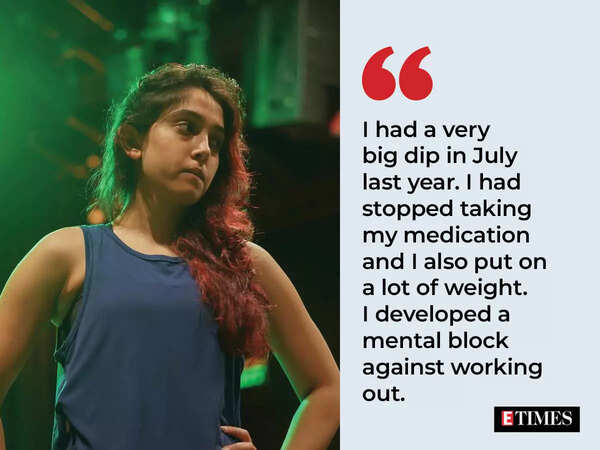
While on the path of healing, how did you deal with the dips?
I had a very big dip in July last year. I had stopped taking my medication. I wanted to see what it was like. There was also some change in my medication and the side-effects made me really uncomfortable. I also put on a lot of weight. I had a slip disc and then Covid happened so my exercise went down and I started to put on a lot of weight. I developed a mental block against working out. I was heading in the direction where I would eat because I was not feeling good. Then I would feel very horrible about myself and would want to starve myself. I felt really scared to eat anything that my mother or doctor had not told me to eat.
I went to Germany to a facility that is a fasting retreat. I fasted there but more importantly, it changed my relationship with food. My medication requires me to eat something. So, I decided to stop my medication because I felt that fasting was important to me. But in July, I had a major crash. And I was so upset that after five years of working on myself I was back to square one. I had given all hope. Usually, my dips happen for a couple of weeks and then I get out of bed. But for six months, I was in bed. I was crying all day and doing nothing.
How did you emerge from this situation?
I redid my test and got back on medication and for three months I just waited. I Googled how to be happy. I was like anything at this point, I am going to try. Because I didn’t know what was happening. I was upset that I was still feeling like this. I can’t kill myself because I’m too scared of pain. But I didn’t know how I was going to live the rest of my life if this is how I am going to be. At some point in time, people are going to get sick of me and give up on me. Nobody is going to marry someone who remains in bed all day and cries.
I spoke to my psychiatrist and tried to understand whether it was going to last for the foreseeable future. I needed to accept the fact that I had a mental disorder. I was going on championing others for their mental health but for myself, I had so much stigma. The switch happened this time. I accepted that I have a disorder. I accepted that it doesn’t mean that I can’t have a certain amount of control in my life. Once that acceptance came about I managed to do things that I knew I was supposed to do. Now, I take care of myself without having to force myself to look after myself. I have become surprisingly functional and productive. I am ordinary and it’s great to be ordinary.
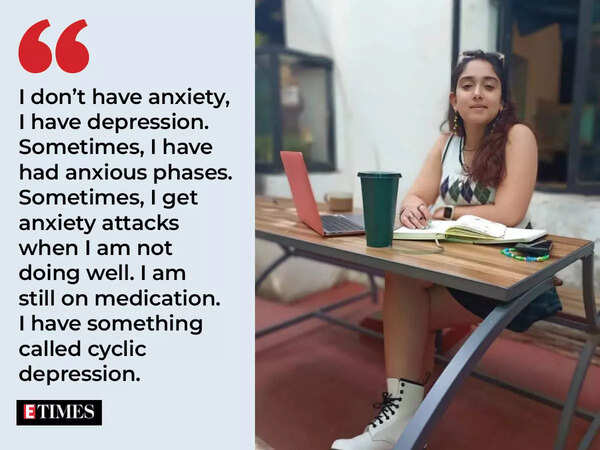
Your institute also provides support for suicide prevention…
The statistics are scary. In 2020, there were more number of people who died by suicide than the ones who died by Covid. At Agatsu, we do a suicide prevention gatekeeper training. We teach and train anybody to spot the signs, ask someone if they’re feeling suicidal, and then refer them for help. I think it is crucial for teachers, doctors, and everybody who is front facing. This is a skill that can be taught like CPR. Suicides are preventable. There are so many factors that go into suicide. And there are many points of intervention where you can help someone. I am an instructor in suicide prevention training and I conduct the training with a colleague of mine. It’s a 10-hour course and is pretty intensive. We also have suicide prevention orientation sessions which are one hour long.
If you are a teacher you should be able to stop your child in class from choking and you should be able to spot if they’re feeling suicidal. We want to start getting in touch with schools. Even psychologists are not trained in suicide prevention. The statistics in America says that 60% of the people who have attempted suicide have gone to their GP two weeks before attempting. People feeling suicidal always show you some signs. But we need to learn how to identify those signs and get them to the right help. It’s important that we learn that.
Do you feel mental health needs to be addressed in the national health program?
I don’t actually know too much about the things at the government level. I know that there’s a District Mental Health Program (DMHP) under which each district is supposed to have a psychiatrist, social worker and a psychiatrist nurse. I know that it is now mandatory to have a counselor at school. But they don’t get real counselors. They pick anybody as a counsellor. There are many systemic challenges to overcome and I have decided and realized that my efforts are best spent on an individual level than a systemic level. In this setting, I can try and see if it helps someone and grow on my idea, whereas the systemic level is far more complicated. I don’t think I have enough knowledge right now to get into that. I shouldn’t comment on it if I don’t know enough about it.
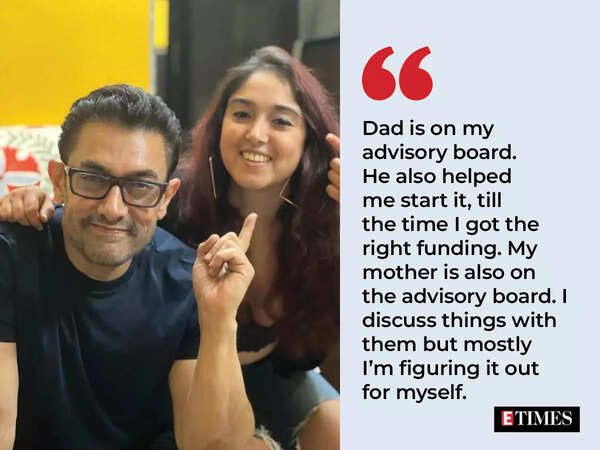
How does your father Aamir Khan contribute to your initiative and the foundation?
He is on my advisory board. He also helped me start it, till the time I got the right funding. My mother is also on the advisory board. I discuss things with them but mostly I’m figuring it out for myself. I am learning new things with my team and tweaking things as we learn.
How independent is Ira and how does Aamir look at her?
I don’t know how he looks at me. You’ll have to ask him. It may seem like I’m independent but I had a lot of support from many different people throughout my life and Agatsu. When I am confused about something, I reach out to various people who I think will be able to help me with that particular situation because I am also new to the mental health space and new to running a company. I have got a lot of support from those around me to help me do what I wanted to do.
Despite coming from a film family, why didn’t you take up a role in any filmmaking department?
Filmmaking is essentially about storytelling and I think I found my storytelling in a different way. I think this is my storytelling. I may not be telling a story but I am listening to people’s stories and I am part of people’s stories. I think my depression really changed what I was going to do with my life. I did not plan to work on mental health until I was diagnosed with depression.
But at any point did you harbor an interest in joining the film business?
I didn’t know what I wanted to become. I wanted to become lots of things. I wanted to become an artist, director, chef, and carpenter. I really wanted to work at McDonalds because I wanted to press that button when the cash counter came up and then you flip the thing. I really want to work at the supermarket where you can scan the QR code. I would love to learn how to do woodwork and sculpt. I have wanted to be in every profession that exists except doctor and lawyer because there’s too much studying.
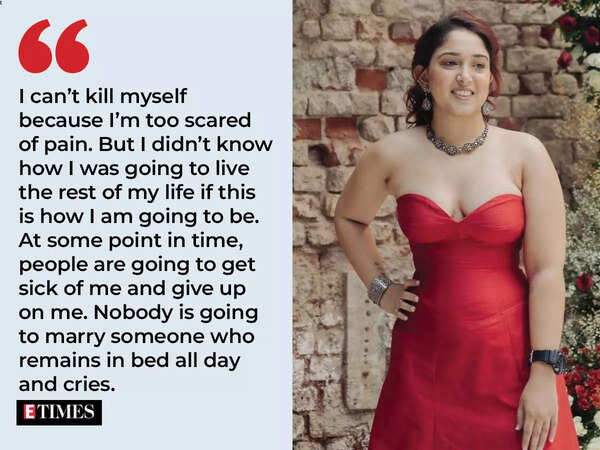
After working so passionately on mental health, have you ever felt the need to pursue a professional degree in the same?
I don’t know yet. I am studying it on my own. I am reading papers. I am studying and training with my psychologists. It’s important to understand what you’re doing to make the right decisions. The whole global mental health movement is turning towards lived experience experts. They gain insights and expertise about that particular thing and that is as credible as a degree. So, I would classify as a lived experience expert.
function loadGtagEvents(isGoogleCampaignActive) { if (!isGoogleCampaignActive) { return; } var id = document.getElementById('toi-plus-google-campaign'); if (id) { return; } (function(f, b, e, v, n, t, s) { t = b.createElement(e); t.async = !0; t.defer = !0; t.src = v; t.id = 'toi-plus-google-campaign'; s = b.getElementsByTagName(e)[0]; s.parentNode.insertBefore(t, s); })(f, b, e, 'https://www.googletagmanager.com/gtag/js?id=AW-877820074', n, t, s); };
window.TimesApps = window.TimesApps || {}; var TimesApps = window.TimesApps; TimesApps.toiPlusEvents = function(config) { var isConfigAvailable = "toiplus_site_settings" in f && "isFBCampaignActive" in f.toiplus_site_settings && "isGoogleCampaignActive" in f.toiplus_site_settings; var isPrimeUser = window.isPrime; if (isConfigAvailable && !isPrimeUser) { loadGtagEvents(f.toiplus_site_settings.isGoogleCampaignActive); loadFBEvents(f.toiplus_site_settings.isFBCampaignActive); } else { var JarvisUrl="https://jarvis.indiatimes.com/v1/feeds/toi_plus/site_settings/643526e21443833f0c454615?db_env=published"; window.getFromClient(JarvisUrl, function(config){ if (config) { loadGtagEvents(config?.isGoogleCampaignActive); loadFBEvents(config?.isFBCampaignActive); } }) } }; })( window, document, 'script', );
For all the latest entertainment News Click Here

